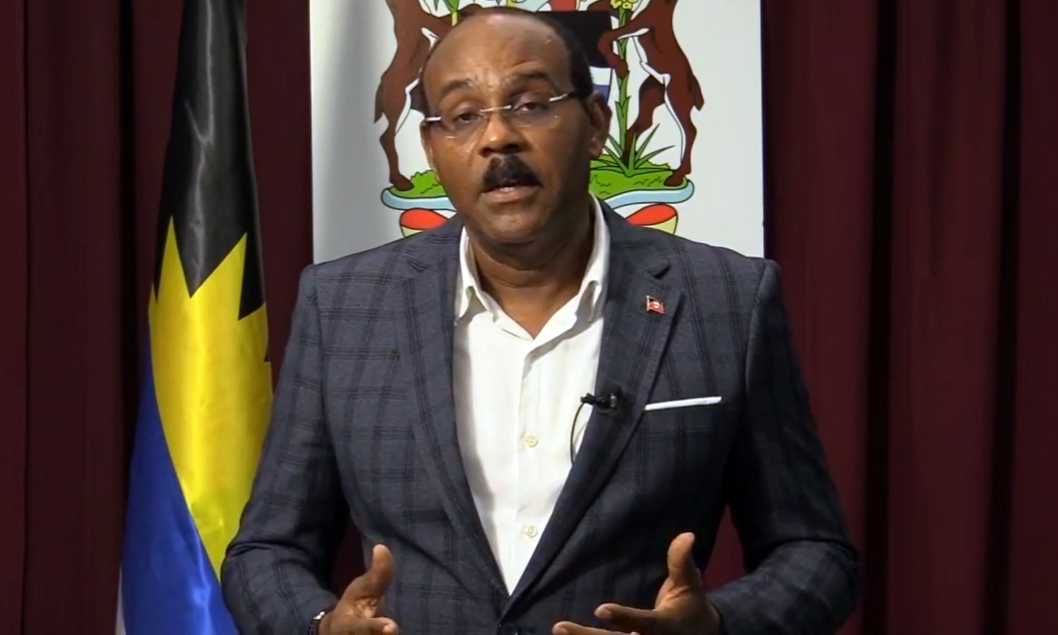By Theresa Goodwin
The Council of the Antigua and Barbuda Bar Association has issued a statement advising members of Parliament and government officials against undermining the country’s judiciary and legal system by making disparaging allegations against specific individuals without providing evidence to support their claims.
The matter surrounds a WhatsApp message allegedly authored by Prime Minister Gaston Browne, which implicates the Director of Public Prosecution Anthony Armstrong in a corrupt act.
Armstrong has since issued a denial, while the prime minister is yet to confirm or deny sending the message.
The message, said to be addressed to the Member of Parliament for St Peter, Asot Michael, accused the MP of corruptly paying DPP to protect him in the IHI Investigation into the theft of public funds.
In the statement, the Bar Association said that it “denounces the impugning of the office of Director of Public Prosecution without providing any evidence of wrongdoing by the DPP. Citizens, particularly those in high office, should not use the ease of social media to make quick, tit-for-tat, unfounded allegations”.
”The Council notes with concern the increasing tendency to make such allegations via social media, perhaps because these allegations do not appear to attract much legal actions and remedies,” the statement read.
The association statement further that “if any citizen or resident, member of government, parliament and the opposition have evidence of corruption and wrongdoing by another, the proper action is to refer the matter or cause the matter to be referred to the police authorities for investigation”.
One of the major principles of the system of government, the association further pointed out, is the separation of powers of the three branches of government, that is, Parliament, the Executive and the Judiciary.
“The principle states that while the three branches are expected to work together for the good of the country, each branch is separate and must act as a check on the other. For example, if a citizen or resident feels aggrieved by an act of the Executive, he or she may take his case to the courts (the Judiciary) for adjudication of the matter. If a private citizen or resident feels aggrieved by an act of another private citizen or resident, he or she may take his case to the police authorities (in criminal matters) or to the courts (in civil matters)”.
The Council also stated that while it stands ready to support anyone who provides credible evidence of such corruption, and also support any police investigation into such evidence, it condemns condemn such allegations being used as political fodder.
“The integrity of our judicial officers should never be questioned without providing actual evidence of wrongdoing, as it is clear that such allegations reinforce the lack of confidence in the judicial system as a whole. Further, such allegations made without evidence are extremely difficult to defend against and makes restoring public trust in our judicial officers a near-impossible task,” the statement concluded.
Meanwhile, in a release dated October 2nd, Armstrong said that he was aware that there are persons who have sought in the past and are presently, for their own selfish and oblique motives, to sully his character since he became the DPP by surreptitiously making false and spurious allegations in an attempt to have him removed.
Referencing the WhatsApp message and the allegation against him, Armstrong said they are unfounded, false, and defamatory and that it is only fair that the author(s) provide the necessary evidence to support the said allegation.
As it relates to the IHI investigation, in which multiple current and former government officials were implicated, Armstrong said that upon reviewing the file and evidence presented to him, he gave the police his opinion on the matter in a 10-page document.
He explained that he highlighted the shortcomings and serious gaps in the evidence and at the very end advised the police that the decision to lay charges against the persons who were the focus of the investigation was for them to make, citing a 2014 Privy Council ruling.
He noted that copies of his response to the police were sent to several Cabinet officials, including the Prime Minister, the Minister of Finance, and the Attorney General on the 4th November, 2013 and his opinion went unchallenged.
Armstrong stated that it is therefore illogical that anyone including the Member of Parliament (MP) named in the text or WhatsApp message could have corruptly paid him for protection when he has never instructed or informed the police not to lay any charges or not to continue with the investigation.
He said his outline of the gaps of the investigation provided a platform for the police to make the necessary changes to strengthen the case, if possible.
He also denied speaking to, being offered or accepting anybenefits, whether monetary or otherwise, from the said MP or any agent on his behalf.
The matter was also discussed at length on Sunday’s Big Issues programme on Observer radio, with many pundits calling on PM Browne to address the WhatsApp allegation.
Political Analyst Ansel St Hilaire also suggested that the DPP should pursue the matter legally.

